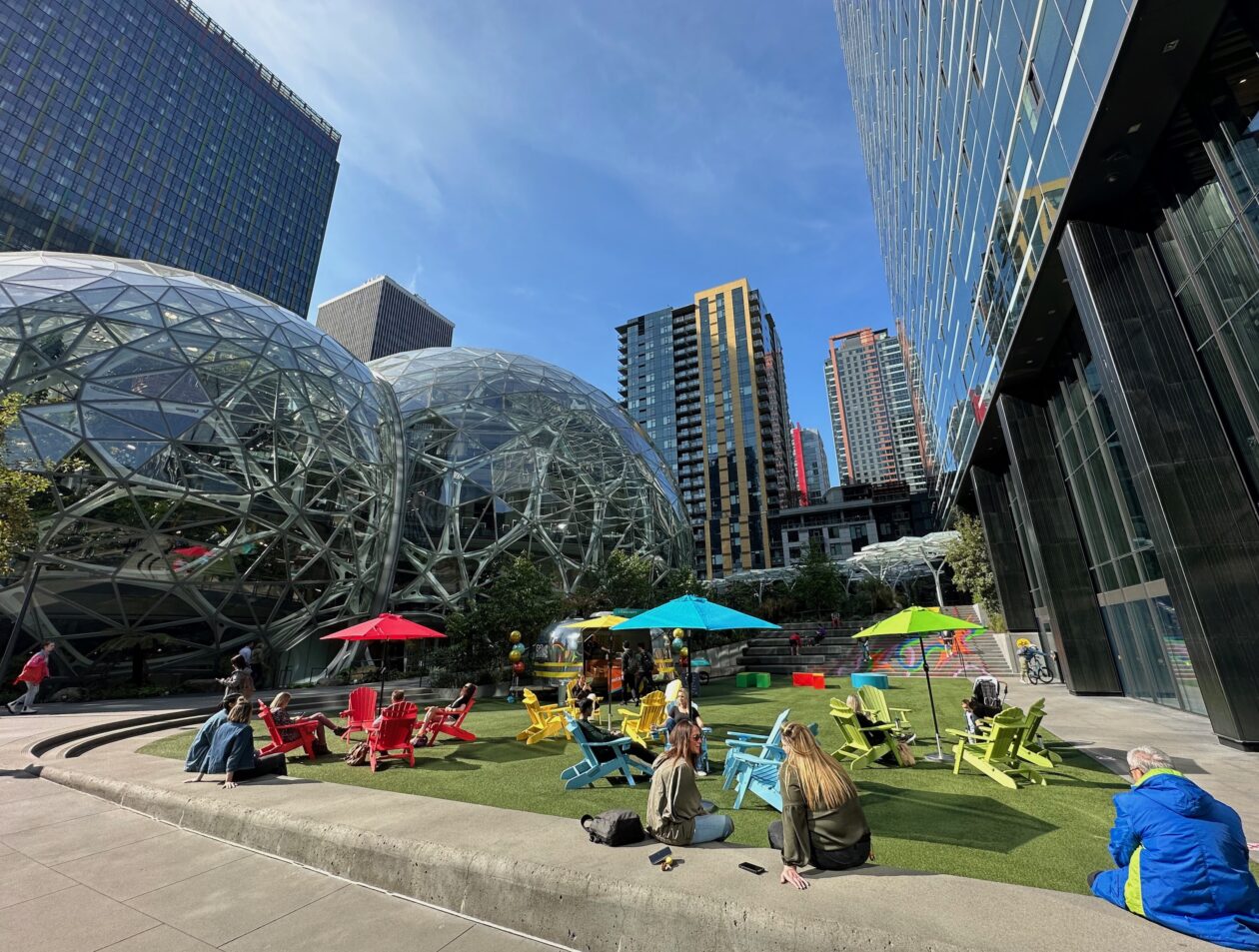Doubling down on its efforts to bring corporate and tech employees back to the office, Amazon is asking some workers to relocate to ensure they’re close enough to work in person with others on their teams.
Decisions about who will need to relocate are being made at a department level, and the number of employees impacted isn’t yet known, Bloomberg News reported. Unless they can get an exception, the choice facing some employees is to relocate or resign, the Seattle Times reported, citing internal Slack messages.
Amazon says it has a process in place for requesting exceptions, and those requests will be considered on a case-by-case basis. The company says employees who are asked to move will be given relocation benefits.
“There’s more energy, collaboration, and connections happening since we’ve been working together at least three days per week, and we’ve heard this from lots of employees and the businesses that surround our offices,” Amazon spokesperson Brad Glasser said. “We continue to look at the best ways to bring more teams together in the same locations, and we’ll communicate directly with employees as we make decisions that affect them.”
The company instituted its return-to-office policy May 1, with employees required to be back in offices at least three days per week. The policy was one of the issues motivating some Amazon employees to walk out in protest May 31.
Community leaders in Seattle have lauded Amazon’s policy as a boost for the city’s struggling downtown. Amazon this week released new numbers that it said showed the economic benefits in the area around its Seattle headquarters.
In a Feb. 17 memo about the return to office, Amazon CEO Andy Jassy acknowledged that “adjusting again to a new way of working will take some time” for some employees but cited the benefits of in-person collaboration.
Jassy also wrote, “Of course, as there were before the pandemic, there will still be certain roles (e.g. some of our salespeople, customer support, etc.) and exceptions to these expectations, but that will be a small minority.”
BY TODD BISHOP on
See article here

 Facebook
Facebook
 X
X
 Pinterest
Pinterest
 Copy Link
Copy Link


